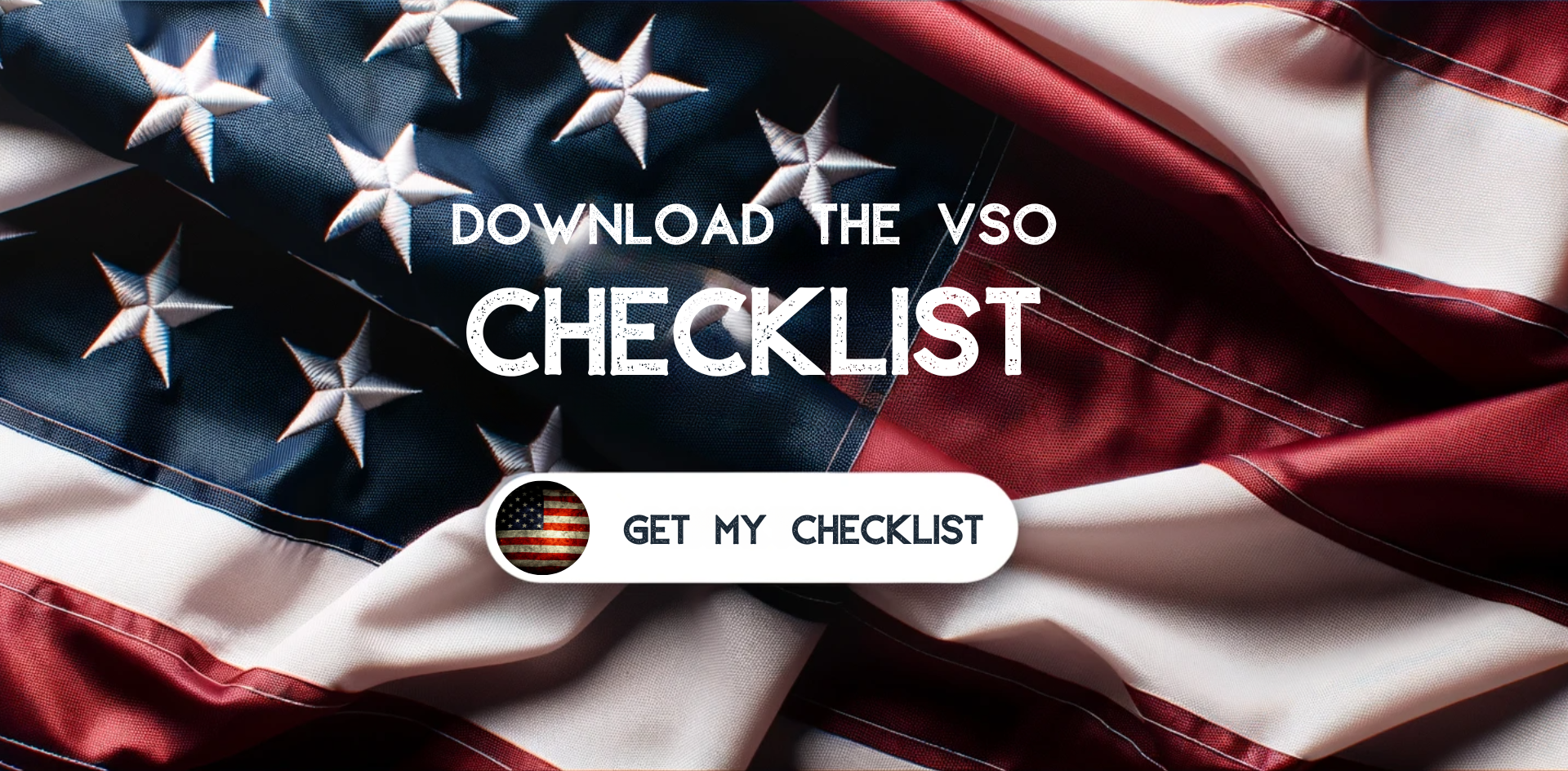The Relationship Between the VA and VSOs: What You Need to Know
As a Veteran, understanding the relationship between the Department of Veterans Affairs (VA) and Veteran Service Officers (VSOs) is crucial in navigating your benefits and claims.
In this article we will shed light on the intricacies in regards to this vital partnership and how it impacts you as a Veteran, how best to navigate tough situations such as denied claims, appeals and much more.
Understanding the VA and VSO Partnership
The partnership between the Department of Veterans Affairs (VA) and Veteran Service Officers (VSOs) is a cornerstone of support for those who have served in the military. The VA, as a federal entity, is tasked with the administration of a range of services regarding Veterans’ well-being. These services encompass healthcare, educational opportunities, and a spectrum of benefits designed to aid Veterans in their post-service life.
Their understanding of the VA’s processes and requirements positions them uniquely to bridge the gap between Veterans and the VA, ensuring that the benefits and services available to Veterans are accessible and understood.
This partnership is built on a foundation of mutual respect and a shared goal: to honor and support those who have served our nation.
What Does a VSO Do for a VA Claim?
VSOs are more than just intermediaries. Their expertise in the VA system is not just about knowing the right forms or the latest regulations. It’s about understanding the unique circumstances of each Veteran and tailoring their assistance to each service member – no matter their situation.
When a Veteran approaches a VSO with a claim, the VSO takes on the role of a navigator, leading them through the procedural process of the VA benefits system. This includes detailed assistance with compiling and organizing the necessary documentation, which often involves service records, medical reports, and other critical evidence needed to substantiate a claim.
VSOs are adept at clarifying the often complex language and procedures of the VA, demystifying the process for Veterans who are simply trying to reintegrate into civilian life and receive their hard earned benefits.
In instances where a claim is denied, VSOs also provide much needed support in the appeals process. They help Veterans understand the reasons behind the denial and what steps can be taken to contest the decision. Their support in these situations can be the difference between a successful appeal and a prolonged struggle for benefits.
Are VSOs VA Employees?
It’s important to clarify the status of Veteran Service Officers (VSOs) in relation to the Department of Veterans Affairs (VA). VSOs are not employees of the VA. Instead, they are typically employed by various Veterans’ organizations, or by state or county governments. This distinction is vital as it allows VSOs to maintain an objective stance, providing unbiased assistance to Veterans.
Despite not being VA employees, VSOs maintain a close working relationship with the VA. This is facilitated by their accreditation with the VA, a process that ensures they have the necessary training and knowledge to effectively assist Veterans. This accreditation is more than just a formal requirement; it’s a seal of trust and competence, assuring Veterans that the VSOs are equipped to handle their claims with the expertise and diligence they deserve.
The VA’s Accountability
The VA is accountable to the federal government and ultimately, to the Veterans it serves. Operating under the oversight of the U.S. Department of Veterans Affairs, it is subject to laws and regulations governing its operations and the benefits it provides.
When to Consider a Veterans Lawyer
The decision to engage a Veterans’ lawyer can be a pivotal one in the journey of securing VA benefits, especially in scenarios where the complexity or legal intricacies of a claim exceed the scope of what a Veteran Service Officer (VSO) can manage. Understanding when to transition from the assistance of a VSO to the specialized expertise of a Veterans’ lawyer is crucial for many Veterans navigating the VA system.
-
Complex Cases Requiring Legal Expertise
In certain instances, you may need to turn to the legal expertise of a Veteran’s lawyer. Having someone on your side that has experience in handling cases that involve complex legal issues can make all of the difference.
In situations where the connection between military service and a disability is not clear-cut, or where there are intricate legal questions about the interpretation of VA law and regulations – having legal assistance is invaluable.
In such cases, the nuanced understanding of a legal professional who specializes in Veterans’ affairs putting together a compelling argument for your claim can give you much needed peace of mind.
-
Appealing Denied Claims
If your claim has been denied by the VA, a Veterans’ lawyer can be an indispensable ally in the appeals process. They bring a wealth of experience in dealing with the VA’s legal framework and are adept at identifying errors or oversights in the original decision.
Their expertise allows them to effectively navigate the appeals process, ensuring that all relevant evidence is presented and legal standards are met. This can significantly increase the likelihood of a successful outcome.
Schedule Your Veterans Lawyer Free Consultation
While VSOs play a critical role in guiding Veterans through the VA claims process, there are circumstances where the specialized legal skills of a Veterans’ lawyer are necessary.
While these services do have a cost associated with them, most Veterans Lawyers work on a contingency basis, meaning you won’t actually pay unless you win the case, so you aren’t going to have to come out of pocket for the expenses.
Remember, you are not alone.
If you have a complex VA claim, denied claim or an appeal to a denied claim, reach out to Veterans’ Law Group for a free consultation – we are here to help.



